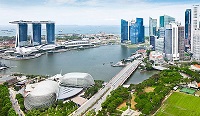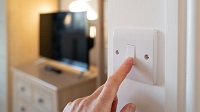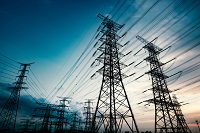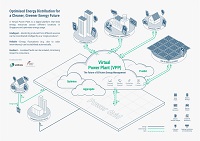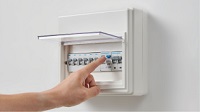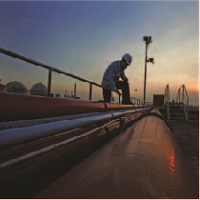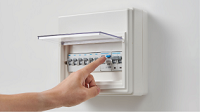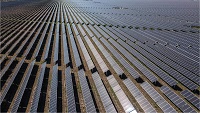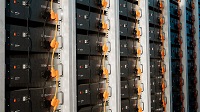- About EMA
- Our Energy Story
- Consumer Information
- Regulations & Licences
- News & Events
- Partnerships
About EMA
Who We Are
Learn about EMA’s leadership, milestones and accomplishments.
Join Us
Explore the career, scholarship and internship opportunities available in EMA.
- Experienced Professionals
- Early Careerists
- Scholars
Our Energy Story
Overview
Discover how the Singapore Energy Story sets the vision towards a net-zero energy future.
Energy Supply
Gain insights into the four switches that power Singapore’s economy and our daily lives.
Energy Demand
Discover ways to enhance energy efficiency and lower your carbon footprint.
Energy Grid
Explore how EMA ensures a reliable and secure energy supply for everyone.
Energy Market Landscape
Learn about the intricacies of Singapore’s energy market structure and operations.
Consumer Information
Electricity
Get tips on buying electricity and protecting your family from electrical hazards.
Gas
Learn about purchasing gas and safeguarding your family against gas hazards.
Solar
Access information on installing solar panels at your home and selling excess electricity to the national grid.
Regulations & Licences
Regulations
Stay up-to-date with the latest regulations, policies and frameworks governing the energy sector.
Licences
Learn about the licences that EMA issues to different stakeholders in the energy sector.
Regulatory Publications
Read about the Codes of Practice and Circulars that EMA publishes to regulate the energy sector.
Partnerships
Calls for Proposal
Collaborate with EMA in co-creating innovative solutions for the energy sector.
Consultations
Give your comments and feedback on EMA’s policies and regulations.
R&D Engagements
Discover how EMA works with stakeholders to catalyse new and innovative digital technologies.
Talent Development
Learn about EMA’s efforts in nurturing talent and cultivate interest in the energy sector.
eSERVICES
Get quick access to EMA’s services for application of worker licences, scholarships and more.
Government officials will NEVER ask you to transfer money or disclose bank log-in details over a phone call. Call the 24/7 ScamShield Helpline at 1799 if unsure. For more information on how to protect yourself against scams, please visit www.scamshield.gov.sg.
Follow these tips to keep you and your family safe from electrical accidents.
Consumers Seeking Advice on Electrical Safety
To ensure safe supply and use of electricity, EMA requires electrical works at consumers’ premises to be carried out by Licensed Electrical Workers (LEWs).
If you are a home or business owner and need technical advice or electrical work to be done on the electrical installation in your home or business premise, please engage an LEW. Electrical works includes any rewiring, modification/alteration, repair or replacement to the electrical installation. In addition to carrying out the electrical works, the LEW will also inspect and certify that your electrical installation is safe before electricity supply is turned on.
Electrical installations operate under different environments with site-specific requirements to ensure electrical safety. Therefore, EMA cannot provide specific technical advice, which your appointed LEW must do after assessing the specific site’s situation.
Engage Only Licensed Electrical Workers
- Engage only licensed electrical workers to carry out any electrical installation, maintenance and repair work. These include new wiring, rewiring and extensions which also have to be tested by an authorised officer from SP Services Ltd before supply can be turned on.
- You can verify whether the person you engage is licensed by EMA by checking online at the e-License Information Services (ELISE) portal or calling 6835 8075.
Watch this episode of Channel NewsAsia’s Talking Point on the electrical safety of water heater installation for your home.
Keep Electricity and Water Apart
Do not:
- Use electrical appliances near water or with wet hands, or
- Touch an open electrical outlet or electrical switch with wet hands.
Do Not Overload Power Points
Overloading power points is dangerous as it may lead to over-heating and start a fire. So do not ’piggy-back’ multiple plugs into one socket by using double adaptors.
It is also important to not use cracked or broken power points/ extension socket outlets. Replace damaged power points/ sockets immediately with the help of a licensed electrical worker to prevent current leakage.
Check the Earth Wire
An unearthed plug can cause electric shock when there is a short circuit in an appliance. Take the following precautions with electrical cords and cables:
- Replace electrical cords with broken or frayed insulation. Do not join cut or frayed electrical cords together with insulation tape as this may peel off after some time, leaving wires exposed. Replace the cord with a new one instead.
- Do not run wires around sharp edges. Running wires around sharp edges can cut their insulation and expose live wires which are dangerous.
- Keep electrical cables tidy and organised. Hide or keep electrical cables out of the way to create a safer environment and prevent potential incidents of strangulation or electrocution.
- Store electrical cords securely. When electrical appliances are not in use, switch them off and store the electrical cord carefully to avoid damage.
Check Your Residual Current Circuit Breaker Regularly
The RCCB is an electrical safety device that cuts off electricity supply immediately upon the detection of current leakages that may lead to an electric shock. Leakages can be caused by factors such as ageing or exposed wires, faulty electrical appliances, and damaged insulation.
By 1 July 2023, all residential premises are required to have an Residual Current Circuit Breaker (RCCB). For flats with no RCCB installed, homeowners are given a grace period of two years to install an RCCB by 1 July 2025.
For your safety, test your RCCB once a month to check that it is in good working condition. Visit the Educational Materials section to find out how you should test your RCCB.
Frequently Asked Questions
An RCCB or Earth Leakage Circuit Breaker (ELCB), commonly known as a circuit breaker, is a safety device that cuts off electricity supply upon detecting electricity leakage in your home. It protects you and your family from electrical shocks or injury. Electrical current leakages can be caused by factors such as ageing or exposed wires, faulty electrical appliances, and damaged insulation.
The RCCB or ELCB is usually located in the distribution board (also known as “DB box”) or circuit breaker box in your home. It can be identified as a switch with a ‘Test’ button on it.
To enhance electrical safety in all households, all residential premises must have an RCCB or Earth Leakage Circuit Breaker (ELCB). Homeowners without an RCCB or ELCB installed in their premises may face a fine of up to $5,000 from 1 July 2025 as enforcement checks may be conducted randomly.
Please note that HDB residential premises that were built before 1985 did not come installed with RCCB or ELCB, unless homeowners had installed one subsequently.
If your HDB flat does not have an RCCB or ELCB installed, please complete this form for assistance. For private homeowners, please engage a Licensed Electrical Worker via www.go.gov.sg/rccb-lew to install it.
